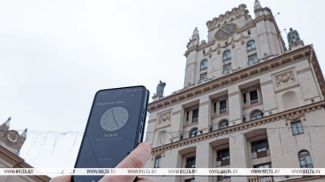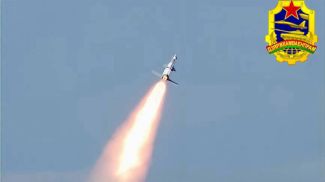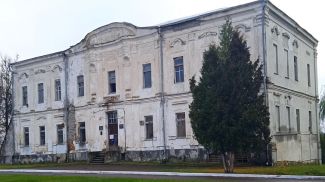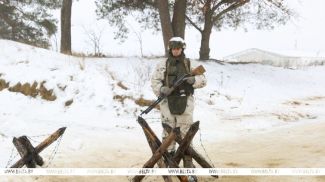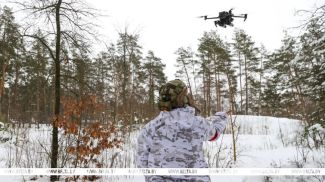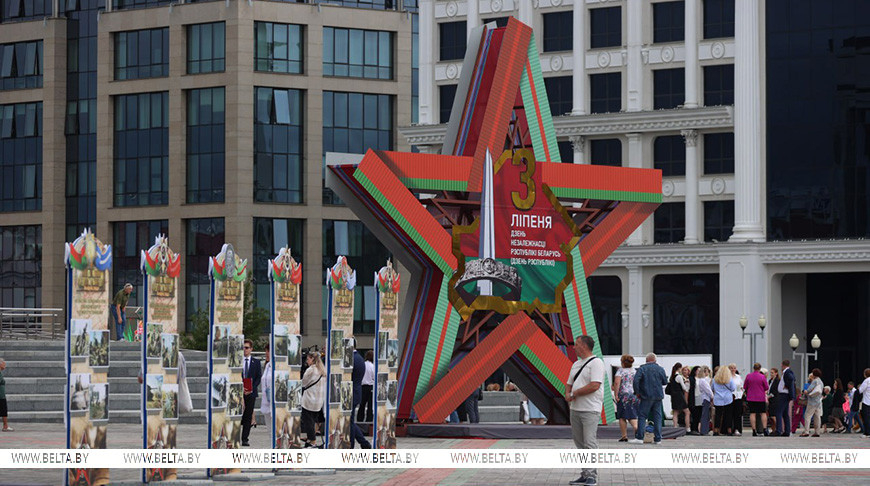
MINSK, 3 July (BelTA) – Today Belarus marks Independence Day, the main holiday of Belarusian statehood.
The decision to celebrate Independence Day on 3 July was adopted in a nationwide referendum on 24 November 1996, with 88.18% of voters supporting the decision. In December of the same year, President Aleksandr Lukashenko signed a decree to establish a public holiday - the Independence Day of the Republic of Belarus (Republic Day). It is an official day off.
This holiday has become a symbol of the national revival of our state. On 3 July, the Belarusian nation pays tribute to the heroism and perseverance of soldiers, the selfless struggle of the underground fighters, the great labor feat of those who raised the country from ruins, built factories, houses and schools.
Victory that paved the way for Belarusian statehood
Minsk was liberated on 3 July 1944 in the course of the brilliant Belorussian offensive operation codenamed Bagration (the largest strategic operation of the Great Patriotic War) through joint efforts of the 1st and 3rd Belarusian Fronts assisted by partisans.
The offensive operation Bagration was of exceptional importance for the Belarusians: without this victory, there would have been neither the Belarusian people nor the Belarusian statehood. Therefore, it is no coincidence that the day of the liberation of the capital city was chosen as the date of independence. 3 July is an eternal symbol of freedom and love for the Motherland, for which Belarusians gave the most valuable thing - their lives.
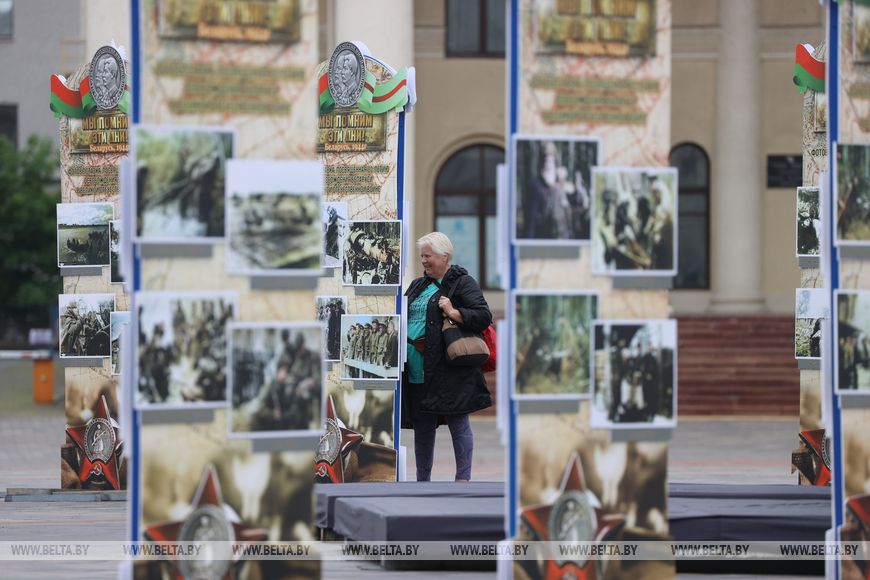
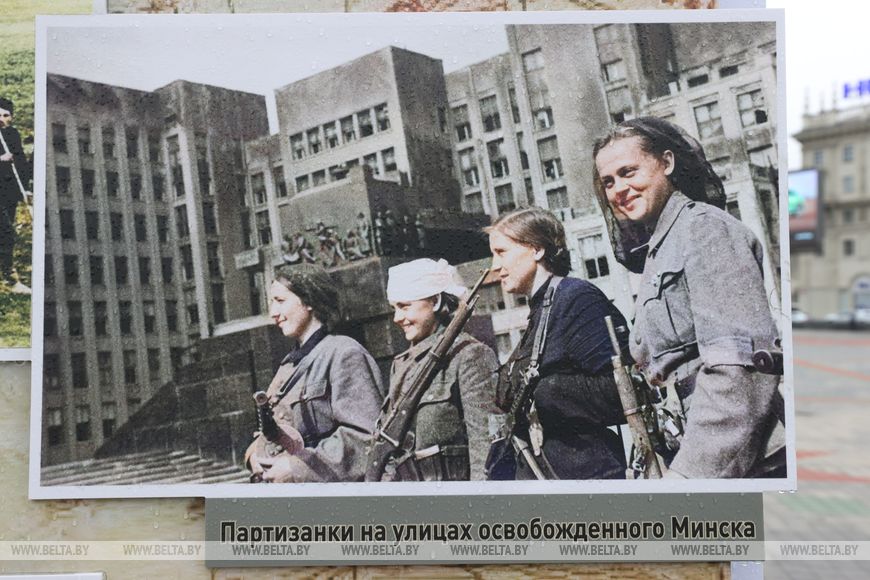
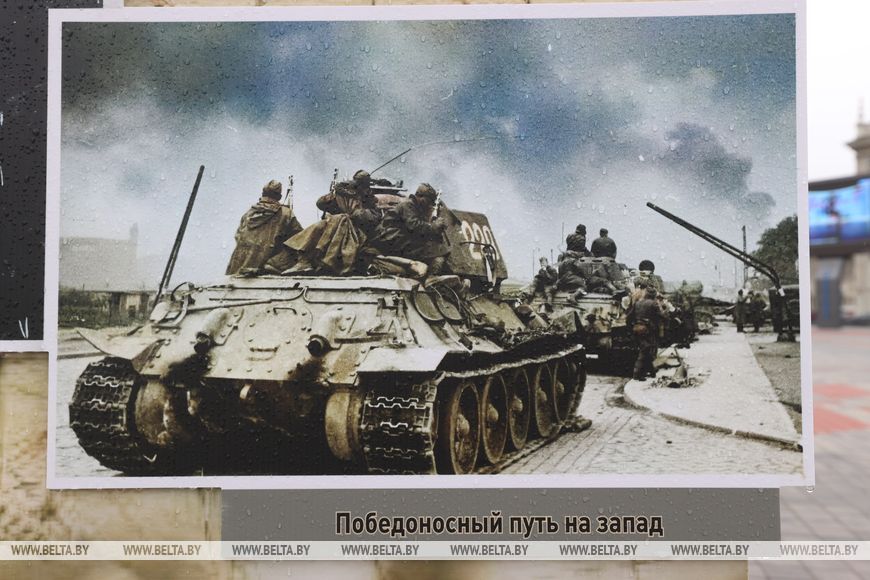
Belarus was the first to bear the brunt of the Nazi war machine. Minsk suffered from merciless bombing and artillery bombardment on the second day of the war.
The Nazi seized Minsk on 28 June. Since the very first days Minsk fiercely fought against the enemy. 1,100 days of occupation equaled 1,100 days of selfless, heroic fight against the Nazi invaders. Minsk was occupied but never conquered.
The Nazis established a brutal occupation regime in Minsk, using methods of open terror against civilians. During the occupation, there were more than 20 concentration camps, big and small, on the territory of Minsk.
One of the first concentration camps that the Nazis set up in the territory of Belarus was in Drozdy near Minsk in early July 1941.
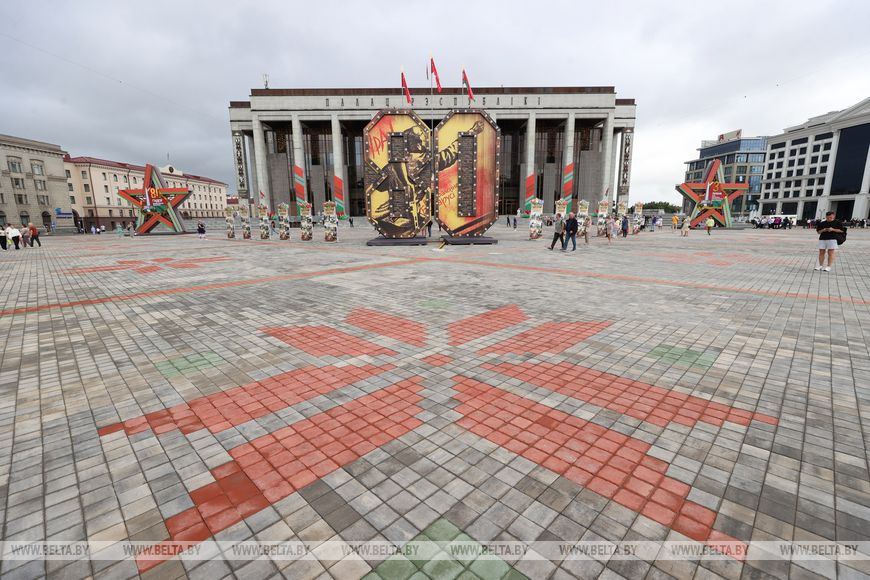
From the first days, Minsk residents were actively involved in the fight against the aggressor. Dozens of underground groups and organizations operated in the capital. Despite significant losses and persecution, they made a great contribution to the liberation of the city. All in all, Minsk underground resistance fighters carried out more than 1,500 combat operations. The assassination attempt on the Gauleiter of Belarus Wilhelm Kube on 22 September 1943 was the biggest of them. Around 120 underground groups and organizations operated in the city during the occupation. They had over 6,000 members. For the courage and heroism, 600 members of the Minsk underground were awarded orders and medals, 8 people received the title of Hero of the Soviet Union. Nowadays, the names of the Minsk underground resistance fighters are immortalized in the names of the streets.
Operation Bagration was carried out from 23 June to 29 August 1944 with the aim of defeating the German Army Group Center and liberating Belarus. The last Belarusian city, Brest, was liberated on 28 July 1944. The Nazi invaders were completely expelled from the territory of Belarus.
On 26 June 1974, a decree was signed to award Minsk the honorary title "Hero City", the Order of Lenin and the Gold Star medal. The award ceremony took place four years later, on 25 June 1978.
2024 marks a landmark date for Belarus: the 80th anniversary of the liberation of the Republic of Belarus from the Nazi invaders. Belarus knows the price of freedom. It lost every third resident in the Great Patriotic War. Traditionally, on 3 July, the Belarusian people pay tribute to the heroism and resilience of soldiers, the selfless struggle of underground fighters and partisans, the labor feat of those who raised the country from the ruins.
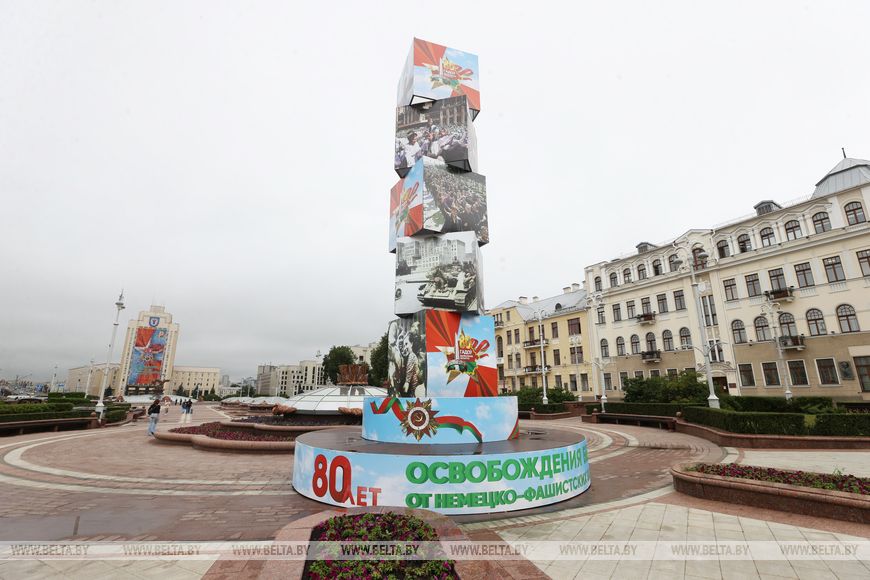
Achievements of modern Belarus
The modern generation of Belarusians has seized of the opportunity to build their own state. Over the years of sovereignty Belarus has created a reliable foundation for the confident development. "We have built on the best achievements of the Soviet period and multiplied them; we keep developing advanced high-tech industries. Despite the unprecedented challenges of the time, we provide social safeguards and opportunities for self-realization to every citizen. The spiritual, moral, intellectual, and economic basis built over the years of independence allows us to look to the future with confidence," President Aleksandr Lukashenko said in his congratulatory message on 3 July 2023.
Belarus maintains interethnic peace and harmony. Any person, regardless of their faith and ethnicity, has the opportunity to live and work freely. Belarus has become a second home to people fleeing wars and conflicts. Today, representatives of about 150 ethnicities live in our country, 25 religious denominations are registered.
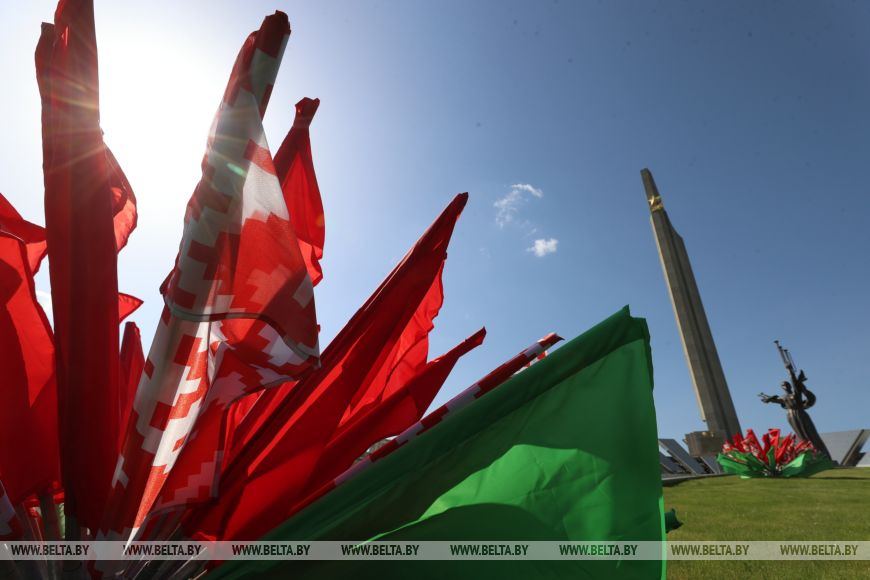
In 2024, Belarus became a full-fledged space power, sending the first cosmonaut in its sovereign history, Marina Vasilevskaya, into orbit in cooperation with Russia. It became the 48th state in the list of countries that were able to send their representatives into space.
All conditions have been created in Belarus to ensure peace, stability and territorial integrity of the state, and this is the most important achievement.
We and the future generations must remember and appreciate everything that has been done for peace and security of our country. We must not forget the fact that these and many other achievements of independent Belarus would not have been possible without Great Victory. The modern generation of Belarusians should always remember the heroic deeds of their ancestors. "Only by carefully preserving the memory of the heroes and multiplying what has been achieved, Belarusians will be able to remain masters of their land and to determine their own destiny," Belarusian President Aleksandr Lukashenko rightly emphasized.
Preservation of historical memory
According to a sociological survey carried out byy the Institute of Sociology of the National Academy of Sciences of Belarus in Q1 2024, 91.9% of Belarusians are proud of Great Victory. The survey also showed that the majority of Belarusians (56.8%) see the Great Patriotic War as a heroic feat of the Soviet people and 55.6% as Great Victory of their fathers and grandfathers.
Preservation of the historical memory is an integral part of the national security of Belarus. According to the Constitution, citizens of the Republic of Belarus have a duty to preserve the historical memory of the feat of the Belarusian people.
Belarus has adopted the laws "On the Prevention of the Rehabilitation of Nazism" and "On the Genocide of the Belarusian People" to preserve the historical memory and suppress the falsification of historical events.
The Prosecutor General's Office of Belarus is investigating a criminal case on the genocide of the Belarusian people during the Great Patriotic War. During the investigation, new facts were established. The list of villages and hamlets that shared the tragic fate of Khatyn, i.e. that were burned down with their residents and never recovered after the war, became longer. As of today it includes 288 of them. Nazis carried out about 180 punitive operations and operated over 580 death camps on the territory of Belarus. In total, during the years of Nazis occupation at least 12,348 rural communities were destroyed, completely or partially, including together with inhabitants, on the territory of the BSSR.
Independence Day of the Republic of Belarus is the main holiday of the Belarusian statehood. This is a historically significant date which has become a symbol of freedom and peace.
Belarus celebrates Independence Day in a solemn atmosphere. The main event is a military parade, which is followed by a series of public events. The day wraps up with a colorful display of fireworks. Delegations and representatives from 21 countries are expected to take part in the celebrations this year.




